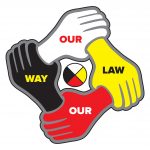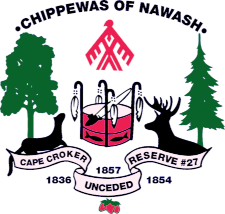Matrimonial Real Property Law

Contact Info
Larissa Johnston
Lands Manager/Membership Supervisor
T: 519-534-1689
F: 519-534-2130
larissa.johnston@nawash.ca
Mailing Address
Chippewas of Nawash Band Office
135 Lakeshore Blvd.
Neyaashiinigmiing, ON
N0H 2T0
MRP Committee Members
Cllr. Randa Keeshig
Cllr. Kathy Jones
Shelley Cornelius
Tina Hill
Teena Millette
Gail Nadjiwon
Jonathan Pedoniquott
Scan for MRP Contact Card

Nothing Found
It seems we can’t find what you’re looking for. Perhaps searching can help.
MRP FAQ
The current provisional law is the Family Homes on Reserves and Matrimonial Interests or Rights Act. There is nothing wrong with it, but each band has the right to replace the provisional rules with their own Matrimonial Real Property Law which is more specific to the individual band’s traditional laws, customs, practices, and policies.
Real Property refers to immovable property. The most common example is the family home and the land it is situated on. Real Property also includes other matrimonial interests or rights that were acquired during the relationship or in specific contemplation of the relationship, or those real property items which appreciated in value during the relationship.
No. The reserve lands are protected for First Nations members. A non-member cannot ever hold an reserve land.
The moveable items like bank accounts, household goods, vehicles, and other personal property are not considered to be real property. These items would be dealt with separately as part of a divorce or separation, or even as part of an estate through a will.
The MRP law would only cover those properties actually located on the reserve. Other properties would be dealt with separately as part of a divorce or separation, or as part of an estate through a will.
It is important that the best interests of children are protected so that they can maintain connection with their First Nation. Courts are bound to consider the First Nation’s views regarding the cultural, social, and legal interests.
An MRP law allows the First Nation to exercise jurisdiction over land and some family law matters on the reserve. It protects the interests of children as a priority, and helps in resolving some property disputes through community-based solutions. It can also help prevent further conflict from arising.
The term “spouse” or “common-law partner” refers to any married or common-law couple, whether both are members or only one is a member. The law applies equally in all cases.

We are grateful to Coldwater Trust for its support of the MRP project.
---
Documents
